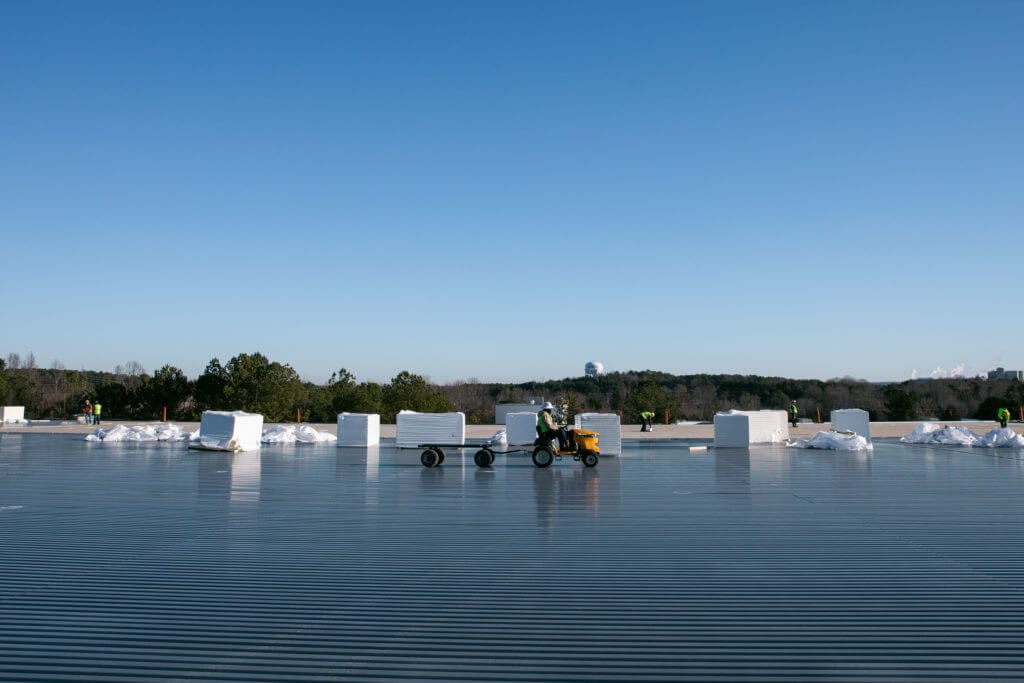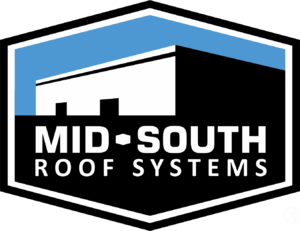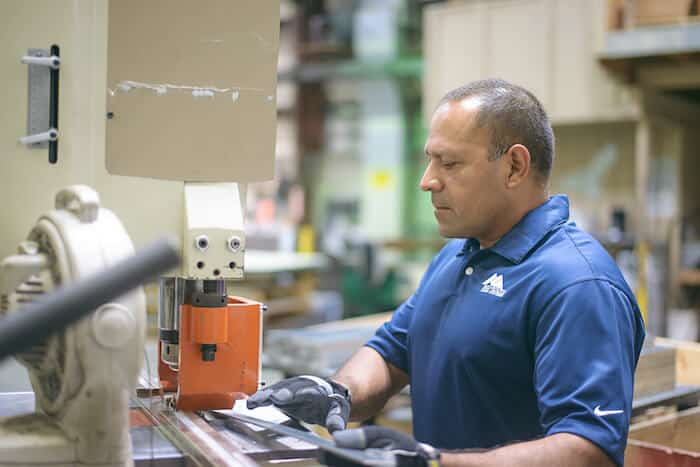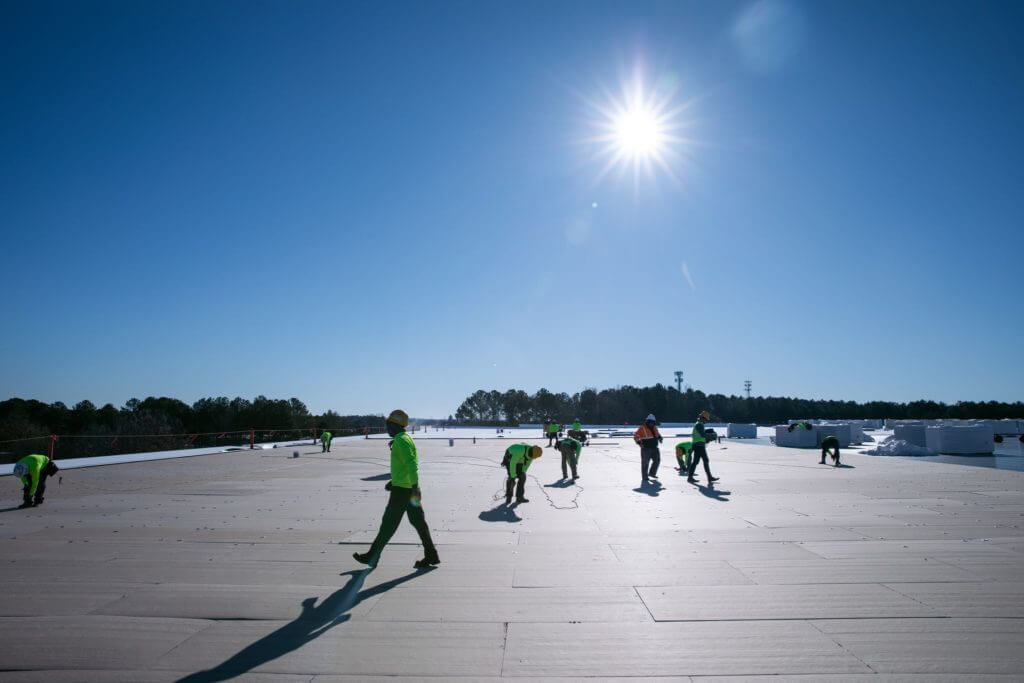Common Misconceptions Related to Commercial Roofing


The commercial roofing industry encompasses a wide variety of property types and roof systems. While seasoned experts understand the industry inside and out, there are several misconceptions about commercial roofing from the general public’s perspective. Our team at Mid-South Roof Systems brainstormed some of the most common myths about commercial roofing that we’ve encountered in our 30+ years of experience. The result of that mental exercise is the following true or false game designed to debunk these myths and uncover the truth about our multifaceted industry.
TRUE OR FALSE: Commercial roofing and residential roofing are the same.
FALSE! From materials and building variables to maintenance and repairs, commercial roofing and residential roofing are two entirely different ball games. A fast-food chain, an office, a warehouse, a football stadium, and a grocery store are all examples of commercial buildings. The majority of commercial roofs are flat and made of different materials than steep-pitched residential roofs. Installing a commercial roof can take months, whereas a residential roof can be replaced in days. Repairing a residential roof can sometimes be completed with a simple patch, but repairs on a commercial roof are usually a much more significant undertaking. It’s important to understand the difference between these two industries to ensure you’re properly maintaining and repairing your roof system.
TRUE OR FALSE: All commercial roofs are the same.
FALSE! There are several types of commercial roofs. The budget, climate, and property type all come into play when deciding what type of commercial roof is best for a building. Some of the most common commercial roofs that we work with at Mid-South include metal, thermoplastic polyolefin (TPO), PVC, and asphalt. When choosing a roof, it’s also important to consider what’s going on inside the building. For example, a drive-thru restaurant would need to have a grease-resistant roof with easy-to-use access points. In contrast, a warehouse would need a solid, cost-effective roof that can accommodate rooftop equipment like multiple HVAC units.
TRUE OR FALSE: My residential roofer can do work on my commercial roof.
FALSE! As explained above, residential roofing and commercial roofing are not the same, and neither are the skills associated with either trade. Residential roofing has essentially remained the same for decades, but commercial roofing continuously introduces new technology. As a result, commercial roofers have had to adapt to the evolving craft. Beyond tactical knowledge, the Occupational Safety and Health Administration (OSHA) safety requirements for commercial roofing work far exceed residential roofing requirements. Given the length of time it takes to complete a commercial roofing project, OSHA inspectors have ample opportunity to scrutinize our work and safety practices.
TRUE OR FALSE: My roof only needs maintenance when it’s damaged or leaking.
FALSE! This is the equivalent of saying, “My car only needs oil if the engine stops running.” Your roof system requires maintenance before it experiences damage or leaking. Preventive and routine maintenance will extend the lifespan of your roof the same way an oil change and a tire rotation will extend the lifespan of your car. For example, commercial roofs are not designed to hold water, so it’s critical to maintain drainage points and keep gutters clean. If a roof isn’t draining correctly, the water will freeze in the winter, which could result in a catastrophic situation for your building. It’s best to avoid an “out of sight, out of mind” mentality when it comes to maintaining your roof system.
TRUE OR FALSE: The color of my roof will impact my energy bill.
TRUE! The color of your roof will indeed impact your energy bill. A white roof (such as a TPO or PVC membrane system) will reflect the sunlight keeping your building cooler. A dark roof (such as asphalt) will absorb the sunlight and heat your building. Choosing the right-colored roof for your building will depend on where you live and your roofing company’s recommendations. At Mid-South, we usually recommend a TPO or PVC membrane roof system (even if you’re in a colder climate) because of the thermal protection and strength qualities of these membranes.
TRUE OR FALSE: I have to stop business operations during a commercial roofing project.
MAYBE. Part of the Mid-South difference is that we’ll go above and beyond to work with your building schedule and help you maintain normal business operations as much as possible. For example, on a Chick-fil-A restaurant project that we recently completed, we adjusted our delivery time and working hours to accommodate the drive-thru’s peak operating hours. Balancing these two conflicting priorities requires cooperation from both the roofing team and the building manager. Our team approaches partner relationships with courtesy, respect, and a listening ear to ensure a safe and seamless process for everyone involved.
TRUE OR FALSE: My roofing company will always recommend the most expensive option.
FALSE! Mid-South’s core values drive us to do the right thing in the right way for the right reasons at all times. We recommend the best solution for every client, and the best solution doesn’t always mean it’s the most expensive one. Circling back to our recent Chick-fil-A project, we discovered a drainage issue caused by improper roof slope. If this had been an older roof, we would have recommended a reroof. But since this roof was only four years old, we found a creative way to block and redirect the water. We strive to be transparent in our decision making and provide the best solution for the customer’s unique circumstances. However, safety is our number one priority. We will never bypass proper safety practices for profits’ sake.
TRUE OR FALSE: I found a leak, so it’s safe to assume that it’s coming from my roof.
FALSE! Just because water is dripping from above doesn’t mean that your roof system is causing the leak. The water could be coming from an HVAC pipe. The moisture could be condensation resulting from a rapid temperature change. Many different elements could be at play above your head, but calling your roofing professional or maintenance team is a good place to start to determine the root cause.
TRUE OR FALSE: Commercial roofers are paid well and there is room for growth in the industry.
TRUE! Commercial roofing requires physical stamina, dexterity, construction/engineering knowledge, teamwork, and communication. You can transfer your commercial roofing experience to other fields, or you can sharpen your skills, work your way up to a leadership position, and apply your expertise to a less physical role. At Mid-South, we are proud to offer commercial roofing as a viable career option. We compensate our employees at a rate higher than industry standards. We are always searching for new ways to grow and engage our team, foster a positive culture, and facilitate growth.
Now that you’re more knowledgeable about the commercial roofing industry, you’ll be able to make informed decisions when selecting the best commercial roofing company for your needs. If you have additional questions about our industry’s myths and facts, don’t hesitate to get in touch with the Mid-South team. We can help you navigate commercial roofing’s intricacies to help you make the best decision for your building.
LIKE WHAT YOU JUST READ?
Sign up for our newsletter to get fresh articles, updates and more!
3 Ways In-House Sheet Metal Improves Construction Projects
Any roof contractor can put a roof on a building, but the job isn’t finished until the metal trim is installed. Typical contractors install the roof and then send the same team back on a later day to install the trim. But when a contractor runs their own sheet-metal shop, they have some serious advantages…
Year in Review 2020
Reflecting on 2020, we are so grateful to have completed our core value launch before facing these unexpected challenges. These guiding principles lit the way for us during dark times and helped us prioritize what’s most important, ultimately leading to a successful year for our company. In celebration of the end of 2020, we thought...


